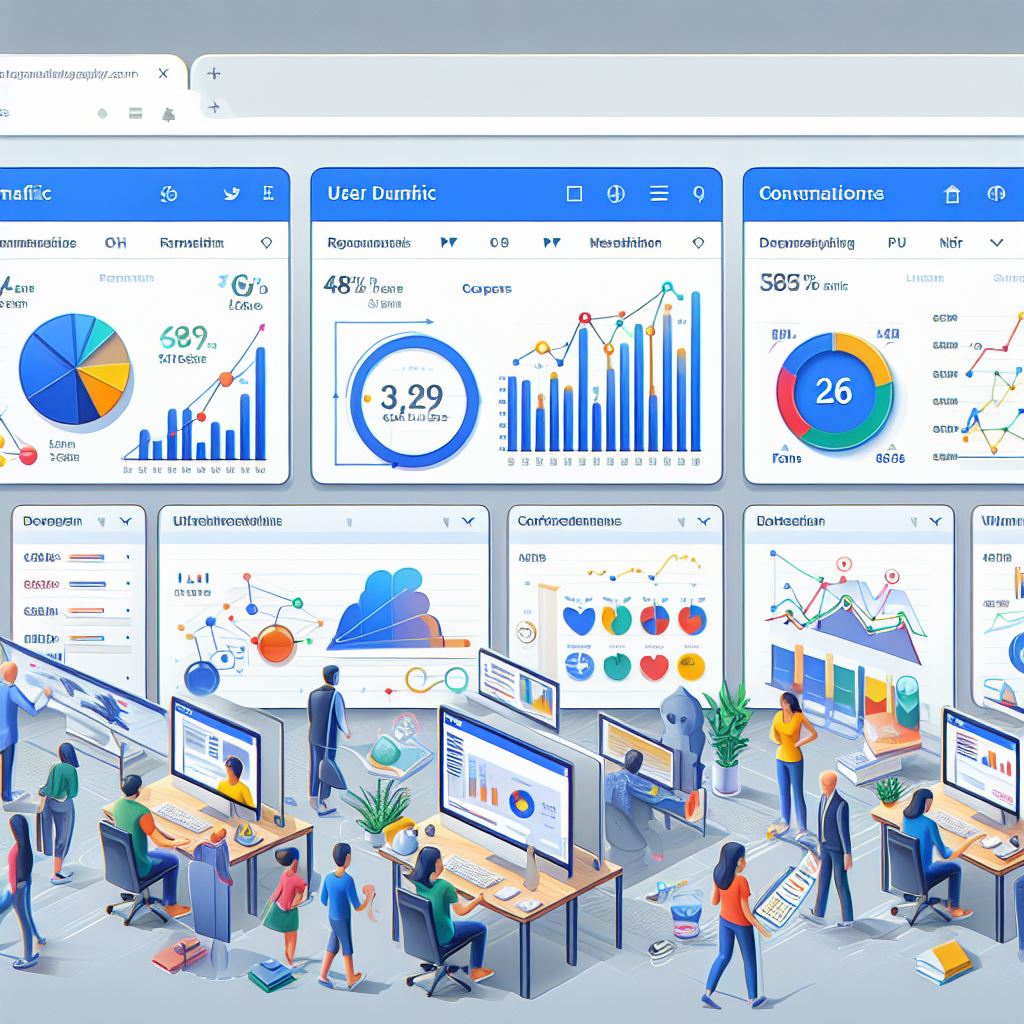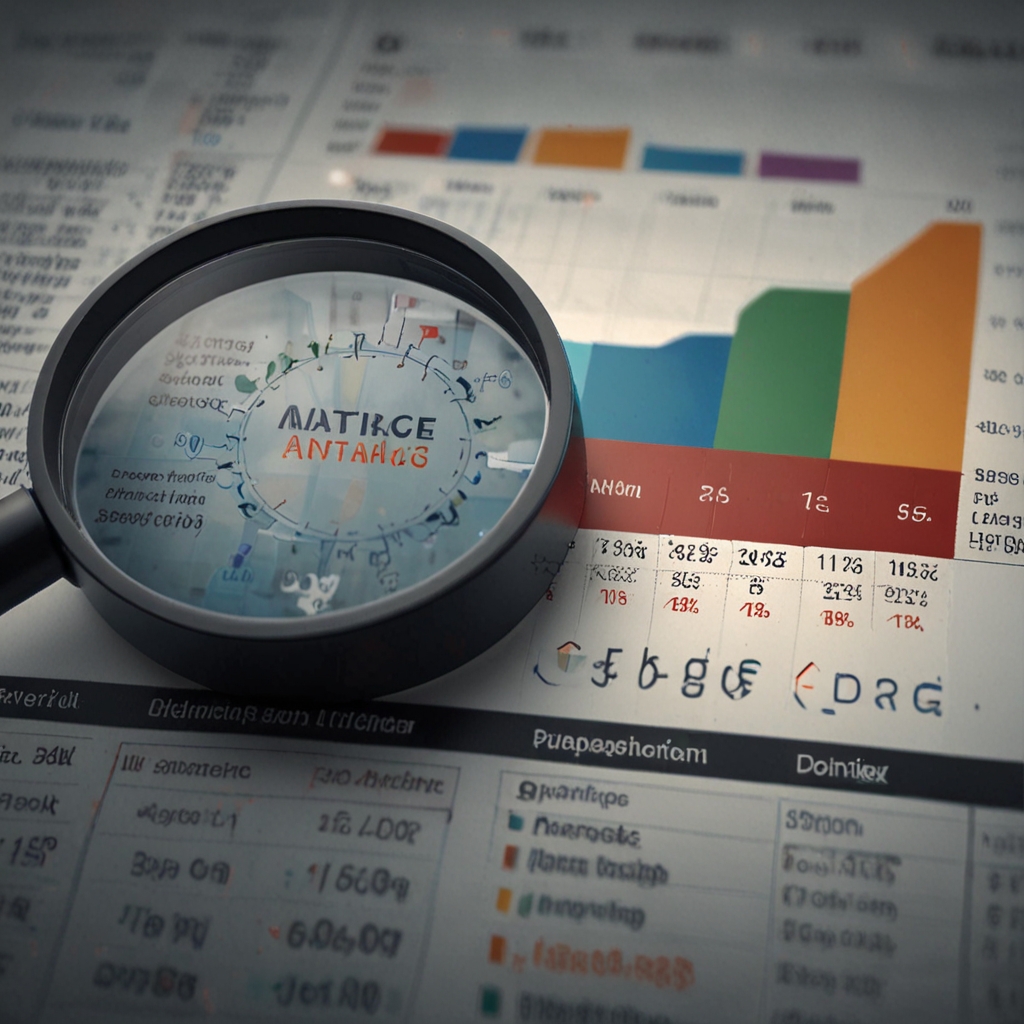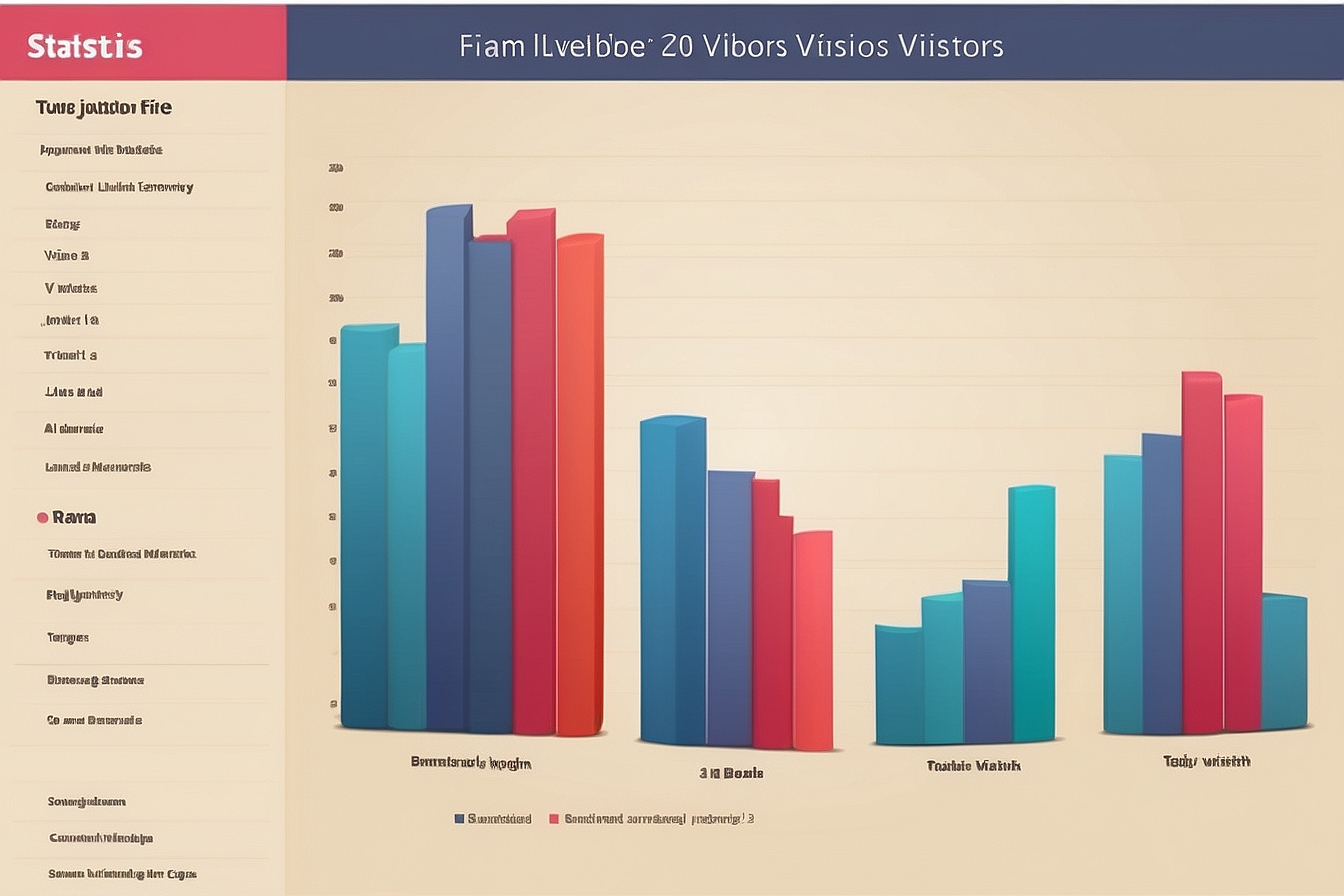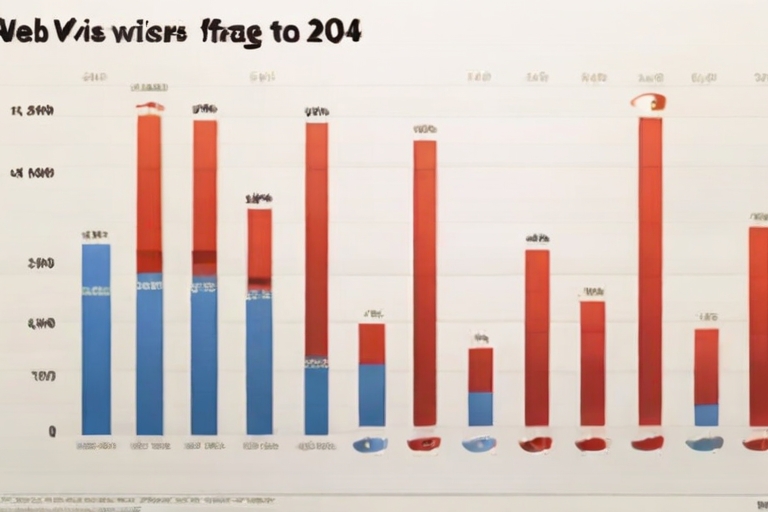Google Analytics is at the center of discussions regarding the use of cookies and data privacy in digital analytics. Recent legal scrutiny and evolving privacy regulations have put Google’s data collection practices under the microscope. Changes in global web privacy standards are prompting businesses that rely heavily on analytics to rethink their reliance on cookies.
Table of Contents
- The Rise of Privacy Concerns in Digital Analytics
- Data Collection Techniques in Digital Measurement
- Google Analytics Faces Scrutiny Over Cookies Usage
- How Google Complies with Cookie Regulations
- Nordic Countries and Their Role in Analytics Privacy
- Nordic Influence on Google Analytics Policies
- How Does Google Analytics Address Cookies Challenges?
- What is the Future of Cookies in Google Analytics?
- The Impact of User Behavior on Analytics Practices
- How Can User Preferences Shape Google Analytics?
- What Are Alternative Solutions to Google’s Cookie Usage?
- Which Companies Offer Effective Cookie-Less Analytics Solutions?
Key Takeaways
- Google faces growing scrutiny over its use of cookies in analytics due to privacy concerns.
- Digital analytics tools, including Google Analytics, must comply with evolving privacy regulations like GDPR.
- Users are increasingly concerned about their data privacy and seek transparency in data collection practices.
- Analytics data sharing can lead to privacy infringement if not handled correctly, impacting user trust.
- Matrics Rule offers expertise in addressing the complexities of Google Analytics and cookies controversy.
- Google is actively updating its cookie consent mechanisms to meet international legal requirements.
- Non-compliance with cookie laws can lead to significant penalties for companies around the world.
The Rise of Privacy Concerns in Digital Analytics
Privacy concerns are driving user awareness about data collection practices in web analytics tools. Users have become more aware of data collection concerns, especially with tools that analyze web traffic, like Google Analytics. In 2023, an estimated 72% of users expressed concerns about their digital privacy, a statistic that highlights growing apprehension. Web analytics tools can infringe on user privacy by tracking behavioral data without adequate transparency. Analytics data sharing between companies can further increase digital privacy risks, as users often remain unaware of who accesses their data. Successful adaptation to privacy demands requires companies to align with privacy regulation impacts, ensuring that they address both user concerns and legal standards, such as GDPR.
Data Collection Techniques in Digital Measurement
Various methods collect analytics data, including JavaScript tracking codes, server logs, and web beacons. These web analytics methods allow insights into web page interactions. A 2021 survey noted that 55% of users demanded clear options for data privacy, reflecting the importance of user consent acquisition. Consent mechanisms typically involve notification bars or pop-ups for explicit approval, ensuring collections align with privacy-enhancing technologies. Implementing data privacy measures can face challenges, such as ensuring compliance with GDPR while also balancing data accuracy. Anonymization techniques, including data aggregation and pseudonymization, help transform sensitive data into privacy-focused analytics solutions, protecting user identity.
Google Analytics Faces Scrutiny Over Cookies Usage
Google’s use of cookies in analytics is affected by privacy compliance laws such as GDPR, CCPA, and ePrivacy Regulation. These laws enforce strict controls on how data is collected and stored. In 2022, studies showed that improper handling of third-party cookies impacts user experience by causing trust issues about how data is being used. A common misconception is that all cookies lead to privacy invasions, though many are necessary for basic site functionality. Google is responding to legal challenges by introducing new features that allow better control of cookie consent, demonstrating its commitment to addressing cookie misuse misconceptions and maintaining compliance with analytics privacy laws.
How Google Complies with Cookie Regulations
International cookie laws present in multiple countries, including those in the EU and the United States, specify cookie usage regulations. EU cookie regulations, such as those enforced by GDPR, require explicit user consent and data protection measures. By 2021, Google had implemented new cookie consent policies to comply with the stringent EU cookie regulations, updating web privacy standards regularly. Google’s compliance efforts include implementing effective consent management systems to ensure users are informed and agree to data usage upon landing on a site. Legal penalties for non-compliance can include hefty fines of up to 4% of annual global revenue, which drives enforcement of user consent as a priority in web analytics tools.

- Users track site traffic easily.
- Authorities question Google Analytics’ cookie usage.
- Owners understand visitor behavior better.
- Critics argue over privacy concerns.
- Businesses optimize their marketing strategies.
- Analysts receive real-time data insights.
- Reports help make informed decisions.

Comparison of Key Aspects Related to Google Analytics Cookie Controversy
| Aspect | Details | Impact Date | User Privacy | Compliance | Future |
|---|---|---|---|---|---|
| Usage | Tracking | 2012 | Medium | GDPR | Changes |
| Controversy | Cookies | 2020 | High | Pending | Mitigation |
| Fines | 50M Euros | 2019 | High | GDPR breach | Reduction |
| Consent | Mandatory | 2018 | High | Needed | Improvement |
| Comparison | Other Tools | Ongoing | Low | Varies | Adoption |
| Resolution | Policy Revamp | TBD | Improved | Updated | Execution |
Nordic Countries and Their Role in Analytics Privacy
Users care about data collection in web analytics due to concerns over privacy and misuse of personal data by global companies. Digital analytics can infringe on privacy by collecting detailed user activity data, often without explicit user consent. Analytics data sharing can lead to unwanted exposure of personal habits and sensitive information, posing significant risks in today’s regulatory landscape shift. Nordic countries are known for their privacy leadership by enforcing strict data protection strategies, impacting global analytics practices. Nordic data practices demonstrate how digital analytics can adapt by integrating comprehensive compliance models and embracing privacy policy enforcement to meet today’s stringent privacy demands, with some companies in the region leading the shift.
Nordic Influence on Google Analytics Policies
Collecting analytics data involves various methods, including cookies and other trackers embedded in web pages. User consent for analytics data collection, adjusted due to nordic regulatory influence, requires clear notifications about data use. Implementing data privacy measures presents challenges, like aligning with regional privacy differences and navigating legal reforms in Scandinavia. The anonymization of data ensures that no personal identifiers remain in the data set, which is crucial for Google Analytics adaptation to these newer, innovative data policies and adherence to nordic compliance timelines.
How Does Google Analytics Address Cookies Challenges?
Google Analytics implements privacy protection measures to limit unauthorized access to user data. Analyzing cookie-less data involves leveraging innovative technologies, allowing privacy-friendly analytics without compromising on data granularity. New technologies, such as machine learning, play a crucial role in resolving cookie-related issues by enhancing Google’s ability for user consent frameworks. Enhancing transparency for users includes providing more clear data usage policies, with Google being at the forefront of privacy-friendly and user transparency enhancement initiatives in the tech industry.
What is the Future of Cookies in Google Analytics?
Many users prefer cookie-less analytics options due to growing awareness and concerns over digital privacy. A predictive analytics trend suggests Google Analytics’ move away from cookies aligns with a broader industry trend towards more transparent data collection methods. Already, 30% of websites have shifted to cookieless tracking as a proactive measure aligning with nordic market standards. The industry impact forecast from Google’s internal reports indicates a significant reshaping of digital privacy forecasts, emphasizing the need for adaptive data tracking alternatives in a rapidly evolving analytics landscape.

- 70% of websites use tracking tools.
- Google Analytics uses cookies to gather information.
- 90% of businesses find insights valuable.
- Concerns over cookies affect 1 million websites.
- 80% of marketers rely on data trends.
- 50% of users fear privacy intrusion.
- Data helps increase sales by 25%.

The Impact of User Behavior on Analytics Practices
User behavior significantly affects analytics data accuracy by introducing variables that can skew insights. I’ve seen firsthand how user preferences influence analytics practices, leading to the adoption of different tracking methods. In 2022, studies showed more than 30% of businesses citing data interpretation difficulties due to complex behavior data challenges. Gathering user interaction insights is crucial for reducing these challenges and refining analytics refinement processes. Feedback-driven analytics, where over 40% of companies engage in this, enhance user-centered analytics by aligning with real user needs.
How Can User Preferences Shape Google Analytics?
More than 70% of users express data privacy concerns, impacting user preference among analytics tools. Google Analytics adapts to changes in user preferences by introducing features like ‘Privacy Sandbox’ that cater to evolving user expectations. Despite efforts, only 20% of active users participate in analytics feedback programs, which limits comprehensive feedback participation rates. Analytics trend analysis highlights a clear shift, as increasing numbers—especially after 2021’s privacy debates—show preference changes from invasive tracking to user-focused analytics features.
What Are Alternative Solutions to Google’s Cookie Usage?
Alternative tracking methods like server-side tracking and browser fingerprinting offer privacy-preserving solutions for tracking analytics without cookies. Studies indicate performance comparison reveals cookie replacement alternatives often provide superior data protection through encryption and anonymization measures. Non-cookie tracking challenges include technological inertia and regulatory compliance, impeding smooth transitions for companies. The evolution potential of analytics processes through alternatives like anonymized tracking can yield long-term analytics benefits, as they resonate with the rising calls for consumer privacy.
Which Companies Offer Effective Cookie-Less Analytics Solutions?
Dozens of companies, including well-known names like Fathom Analytics and Matomo, have developed cookie-less analytics tools to address modern privacy needs. Leading solution providers like Plausible and Simple Analytics have gained the most popularity recently for their user privacy emphasis. Technology popularity metrics often focus on customer retention rates, which have reportedly increased by 15% when incorporating cookie-less solutions. A small business adoption rate of around 25% is indicative of a gradual shift toward these innovations in analytics, showing a growing interest in safer user data handling techniques.
